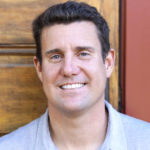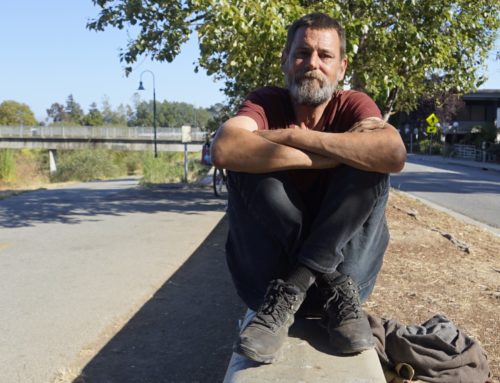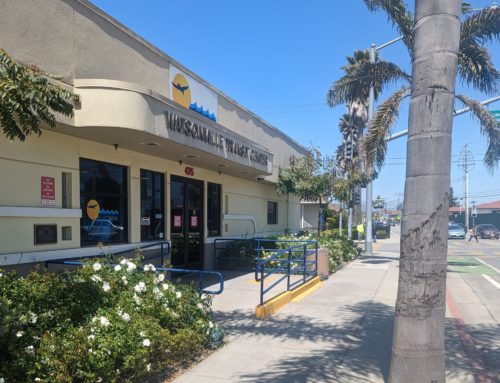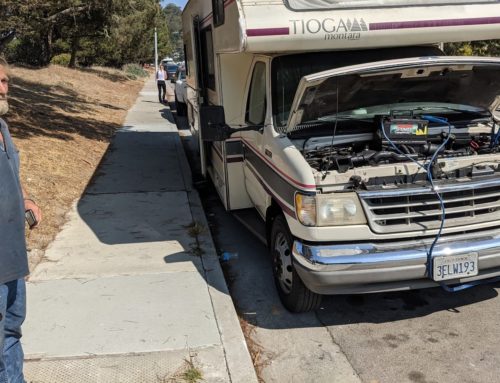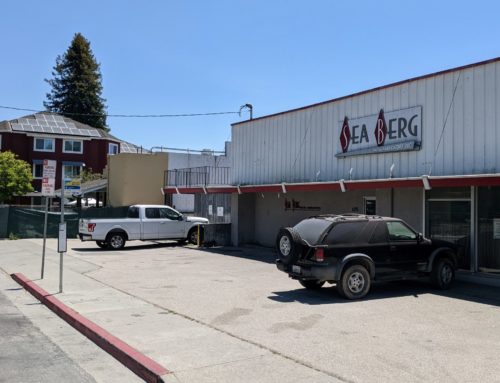We press the candidates for Santa Cruz City Council on what we heard are your concerns: homelessness, housing, the environment, jobs and discord on the city council. We hear from Drew Glover, Renee Golder and Tim Fitzmaurice.
We explain what the recall is and why it’s on your ballot. We also discuss who’s funding the recall campaign.
Do you live in the city of Santa Cruz? You’ll vote in this race.
Listen to the rest of our “Vote March 3” elections series.
- Part 1: Voting in Santa Cruz County 101 (Jan. 8, 2020)
- Part 2: The People’s Agenda (Jan. 30, 2020)
- Part 3: The District 2 supervisor race (Feb. 3, 2020)
- Part 4: The District 1 supervisor race (Feb. 6, 2020)
- Register to vote in California or change your party, your address or your name.
- Check your registration and voter history.
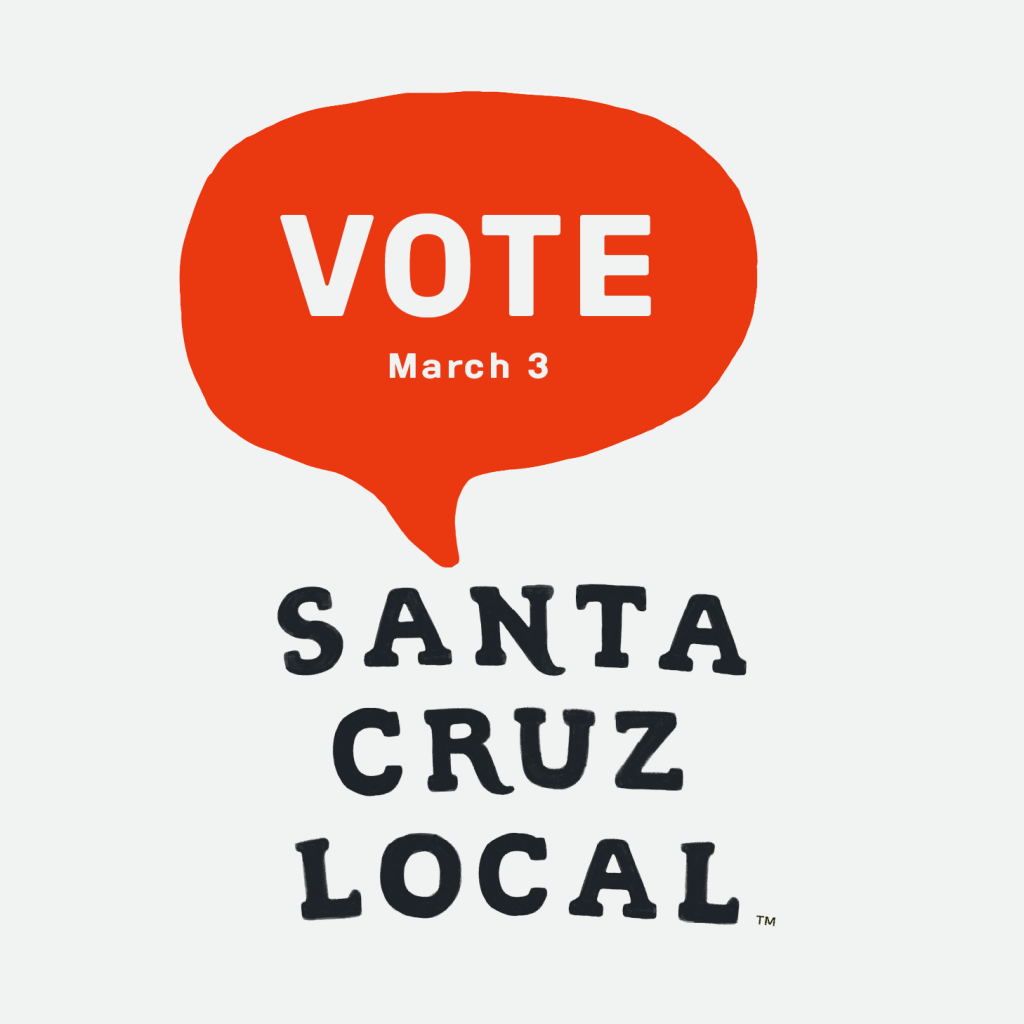
Editor’s note: Transcripts are usually only for members, but we’re making our “Vote March 3” transcripts available to everyone. We hope this series will encourage more people to get informed about the March 3 local elections.
TRANSCRIPT
KARA MEYBERG GUZMAN: This episode is sponsored by Santa Cruz Works — your connection to our area’s thriving tech and business community. With over 5,000 members, Santa Cruz Works gives you access. The largest monthly tech events solutions for your startups and businesses. Connections to the hottest jobs and the latest news about local companies, their stories and best practices. Subscribe free to the Santa Cruz Works weekly newsletter today. Santacruzworks.org/podcast.
[MUSIC]
STEPHEN BAXTER: I’m Stephen Baxter.
KARA MEYBERG GUZMAN: And I’m Kara Meyberg Guzman.
SB: Welcome to Santa Cruz Local.
[MUSIC FADE OUT]
This episode is part five of our election series “Vote March 3.”
Today’s episode: The Santa Cruz City Council, Drew Glover’s seat.
We have two recall votes happening right now in the city of Santa Cruz. In this episode, we’ll just focus on one of those recall votes, for Councilmember Drew Glover. Kara, first question. For people who haven’t been following this closely, what is a recall?
KMG: A recall is a tool that voters have to express their discontent with elected leaders. So in this state, if you’re unhappy with an elected leader, and if you get enough signatures on a petition, then you can actually spur an election. The voters will then get to decide whether that elected leader gets to keep their seat.
SB: Why are we having a recall?
KMG: A group called Santa Cruz United formed last year. They wanted to get council members Chris Krohn and Drew Glover out of office. They had a lot of reasons, which we’ll get into at the end of this episode.
But in short, it had to do with how those city council members dealt with homelessness last year. And also, the group felt that those two council members were rude to city staff and other council members on the dais.
SB: And then they collected more than 7,000 signatures on two petitions. One was for Drew Glover, the other for Chris Krohn. Kara, what will voters see on the ballot?
KMG: You’ll see two questions on your ballot this March related to this race.
The first is: Should Councilmember Drew Glover be removed from office. If you vote yes, that means you want him out. If more than half of city voters vote yes, then Glover will be removed from office.
The second question is: Which candidate do you want to replace Glover if he’s removed from office. You’ll get to pick from two candidates to replace Glover — Renee Golder or Tim Fitzmaurice. If Glover is removed from office, then whoever gets more votes — Golder or Tim Fitzmaurice — would take his seat. In that case, the winner would serve the remainder of Glover’s term, which ends in 2022.
Just to be clear, you can still vote no on the recall and still pick someone to replace him.
SB: All right, let’s get into it. Kara, tell us how we came up with the questions for these candidates.
KMG: We started with a listening tour. In January, we hosted or attended more than a dozen community events around the county. And we asked everyone we met, what do you want the candidates to talk about as they compete for your vote. This style of elections coverage is different from the traditional way, the traditional way you have reporters and editors in a closed room deciding what to press the candidates on with this approach. We really wanted it to come from you, the community.
SB: Also, we’re not just letting the candidates shape the issues. We’re trying to come at this from the people’s point of view.
KMG: We heard five themes. One, housing. Two, homelessness. Three, the environment. Four, jobs. And five, discord on the city council.
We came up with a list of questions based on these themes. And you’ll hear the candidates’ responses in a second.
But first, a quick get to know you.
[MUSIC]
KMG: Drew Glover is 34. He’s a staff member, volunteer coordinator and lead trainer at the Resource Center for Nonviolence. He was elected to the city council in 2018. I asked Glover what keeps him in Santa Cruz.
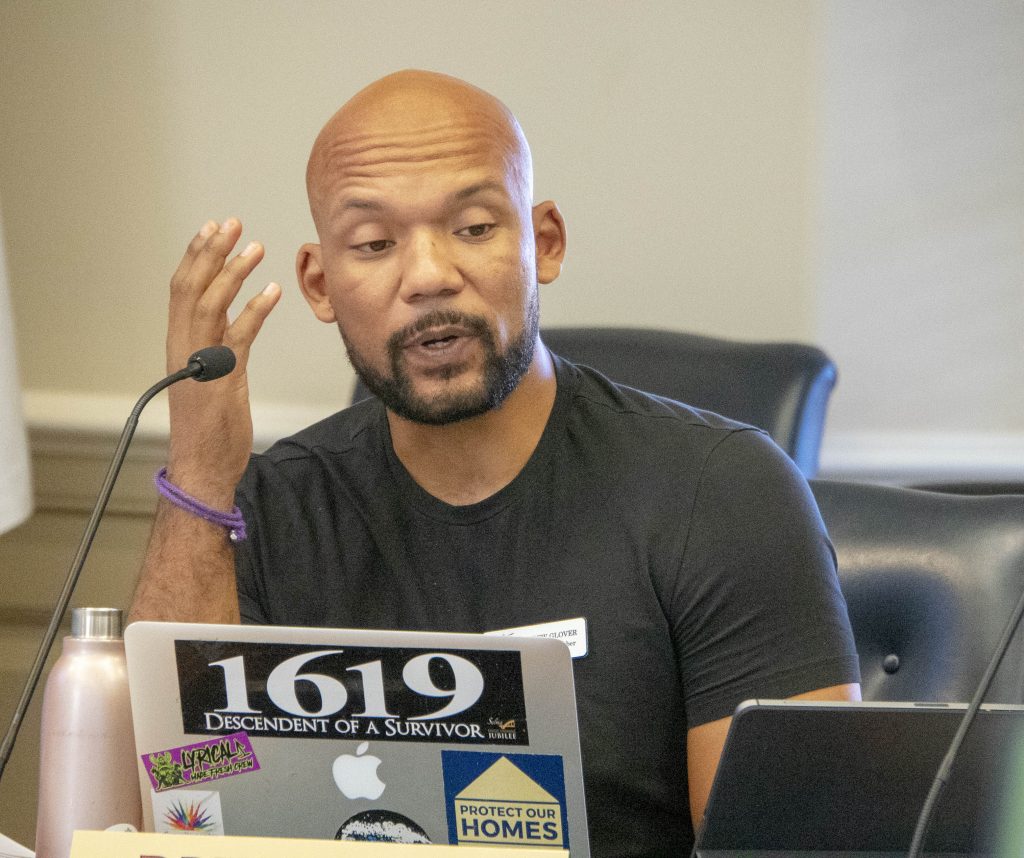
DREW GLOVER: I think it’s a dedication to the community that I grew up in.
I have a strong connection to Santa Cruz in the city in general just from growing up and experiencing it as a young person. And then growing into adolescence and then all of the things that face especially low-income people since I would consider myself to be poor.
KMG: What local issues affect you that made you want to run for office in 2018?
GLOVER: I think it has to do with all the policies that impact people that are underrepresented. You know, I studied sociology in college. And as a mixed-race person, understanding the lack of representation in policy and politics in general, and how important is to have a voice to represent those perspectives.
You know, housing and affordable housing is something that’s important as a renter.
But also, people that are experiencing homelessness and the humanitarian need that exists. Because there have been a couple times even while I’ve been on the council, where I’ve almost become someone that is experiencing homelessness, either living in a van or couch surfing. And the reality of that and being able to empathize and understand that aspect.
And then public transportation. I wish I didn’t have to have a car to be able to get around Santa Cruz. And I remember growing up and being able to take the bus readily from one place to another. So how that’s changed and diminished over time.
KMG: What’s your dream for the Santa Cruz community?
GLOVER: Justice, I think in all of its forms. Environmental justice, economic justice, racial justice, gender justice, justice for the LGBTQ community, and just all of the things that are encompassed in that concept of justice and equity.
KMG: What’s a fun fact about you that people don’t know?
GLOVER: I train in martial arts. Sandokan mixed martial arts.
[MUSIC]
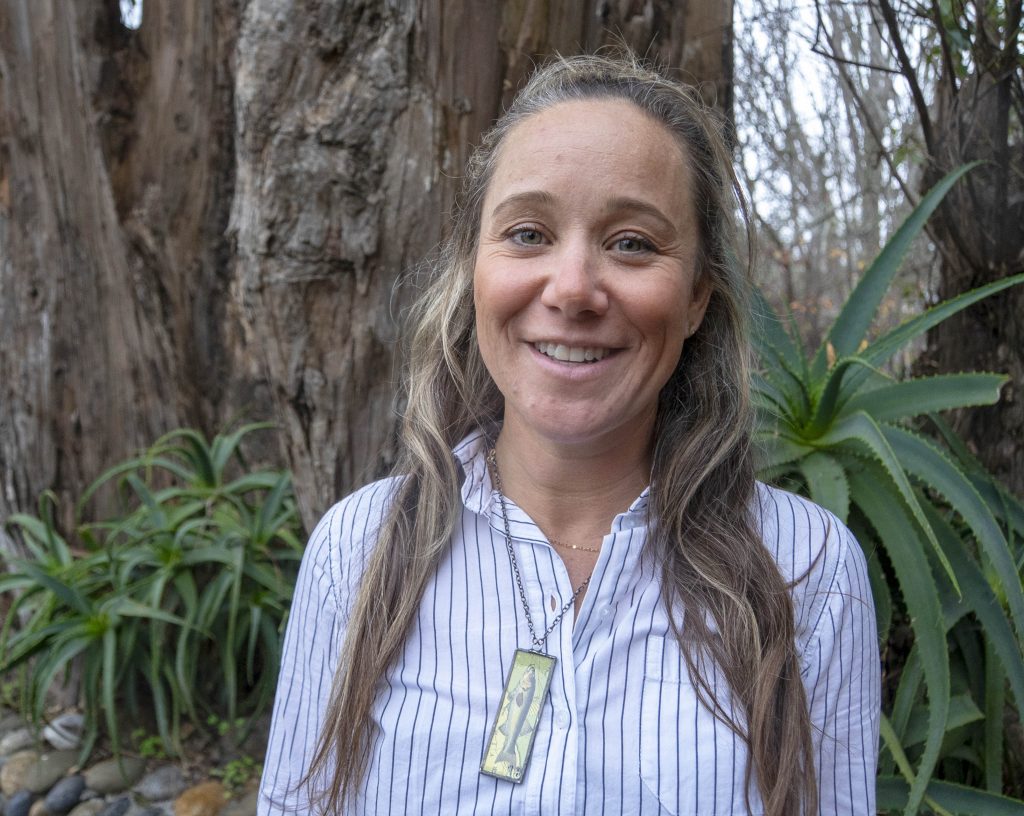
KMG: Renee Golder is 42. She’s an educator at Bayview Elementary school. She served on the city’s Sister Cities committee, and on the public safety Task Force in 2013. I asked her, “What keeps you in Santa Cruz?”
RENEE GOLDER: So, I was born and raised in Santa Cruz and I feel like I won the lottery. I’ve traveled a ton, but there’s no place that’s like home like Santa Cruz. I’ll never leave.
KMG: What local issues affect you that made you want to run for office?
GOLDER: So I’m lucky to have a great job. I’m a teacher and I’ve been teaching now 20 years and my husband has a great job. As a firefighter, but I know lots of people just an even in the middle-income bracket that I would say, like us, with two professions that can’t afford to buy a house. And so what I would like to see is not only more low-income housing, but more affordable housing and really defining what that means.
KMG: Golder also mentioned homelessness.
GOLDER: I don’t know how in depth I want to go with this, but I can just share that there is a member of our immediate family that is experiencing homelessness right now in Santa Cruz. And it is such a complicated situation. And this is just one individual. And so I think we need to have an all-hands-on-deck approach when looking at this situation.
KMG: What is your dream for the Santa Cruz community?
GOLDER: I would love to see a Santa Cruz where it’s a welcoming environment where it’s safe for people to walk around the streets, where people want to come here in visit on vacation, where families feel great taking their kids to the beach or to the park or wherever they go, and where people are patronizing local businesses, and we just have a thriving community that everyone’s proud to call home.
KMG: And lastly, what’s a fun fact about you that people don’t know.
GOLDER: Um, a fun fact about me is that I used to want to be an astronaut. And I went to space cam. I saved up to go to space camp when I was a little kid and I took a couple of airplane flying lessons when I was like a sixth grader. I got to take the plane and fly out of Watsonville and then land up in Bonny Doon where I lived by the airport up there. And then over the Lane during the Coldwater Classic. That is something, that I’ve flown an airplane.
[MUSIC]
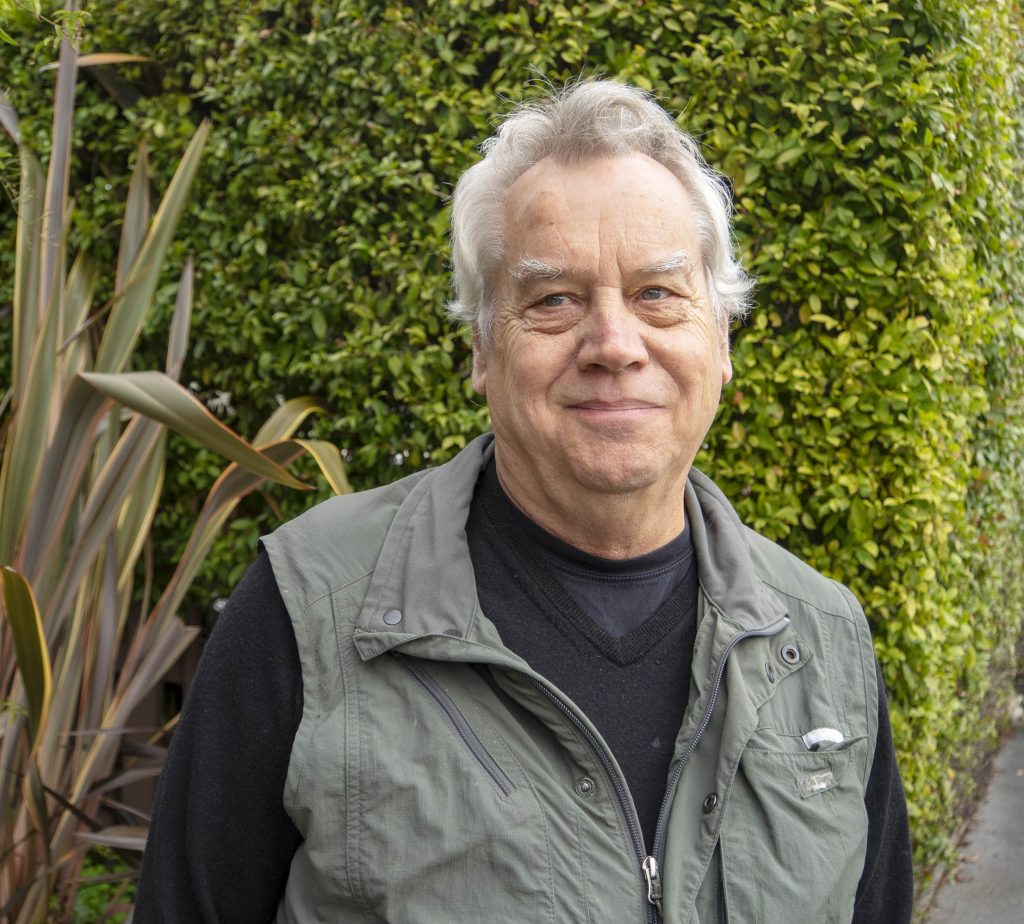
KMG: Tim Fitzmaurice is a former mayor of Santa Cruz. He was on the city council from 1998 to 2006.
Tim is 70. He teaches ethics and writing at UCSC. He’s also a teaching artist at Salinas Valley State Prison. I asked Fitzmaurice, “What keeps you in Santa Cruz?”
TIM FITZMAURICE: I came to Santa Cruz because it’s a beautiful place. And that’s why everybody comes haere. I was living in Santa Clara. And I didn’t want to be in Santa Clara anymore. I didn’t want to raise my family in Santa Clara.
And then I so I came here, but then I went back to go to school, at San Jose State and then I came back to go to graduate school at UCSC. And I’d be I got a job teaching writing there for 30 years and loved it. And the earthquake made me into a politician. I either was going to give up on this town or I was going to try to fix it.
And so I’m here. I’m in Santa Cruz because I love it. It’s beautiful. And it brings me joy.
KMG: What local issues affect you and make you want to run for office again?
FITZMAURICE: The big issue is the economy and the way the economy is shaping the city. The city needs to shape its economy. We can’t allow the economy to shape the city. And that economy is basically flowing in from Silicon Valley where I came from, Santa Clara. I mean, it was exactly the same place that tore down the downtown and Santa Clara when I was a kid. I could see where that was going, and that was truly devastating. And to come here and see it, basically the same thing is happening here.
The economy is shaping and we are, I mean, I was asked to run by certain by certain groups, and people. I was not interested in running again, I was, you know, in office long ago. But what I saw in the city was a potential potentially a loss in the progressive council that would come. If the recall were successful, then we it looked like we are going to vote in people that would not necessarily be as progressive as I would find ideal.
KMG: What is your dream for the Santa Cruz community?
FITZMAURICE: You know, my dream is equity, environmental justice.These are the things that I’ve always wanted to see happen as a community. Obviously, opportunity.
My dream is to have a place where we can raise children, the children can actually live here, when we’re done. It’s not, it doesn’t become unlivable because of wealth, and those kinds of things. So my dreams are to bring this community — I mean, the reason people move here is because this community is what it is. And if they if we don’t pay attention to what it is, and to end to care for that, then we’re going to lose it.
KMG: What’s a fun fact about you that people don’t know?
FITZMAURICE: A fun fact? I think I think I’m a real fun guy. I don’t know, you know, That’s difficult. I mean, I like, I said, I baked the bread I that I ate this morning. I mean, I’ve become a baker.
I do things, I play the guitar, I garden or a bake. I do things that allow me to, to meditate on something that’s not all of this stuff that’s going on out there. And I find this really centering and an important to my life.
So that’s a major – I don’t know how much fun it is — but it’s a major factor in the way that I, sort of, do my life.
[MUSIC]
KMG: OK. Let’s get into the People’s Agenda.
First question. The majority of the more than 100 city residents we interviewed and surveyed this month told us homelessness in the city is a top concern. What is the problem with the way the city has been handling homelessness? What policy would you push forth? Drew Glover.
GLOVER: So the issue with the way that the city has been dealing with homelessness is that instead of trying to find creative and data-driven solutions, they’ve been focusing on trying to criminalize the issue and/or spend exorbitant amounts of money on ineffective strategies.
The models of camps that they have implemented are a waste financially, and do not justify the amount of money that has been used to perpetuate them. They’ve ignored data-driven solutions like establishing transitional encampments, and figuring out ways to find effective locations in which to place them.
And the way that they have over the last generation really just focused on moving people along pushing them from one place to another burying them in citations, which only perpetuates the cycle of homelessness, especially when it comes to people that are sleeping in their vehicles, or once they accrue enough citations and/or violations than their vehicle is set to be towed and then I’ll end up on the street and experience even more chronic homelessness. Pushing people into doorways, making them sleep in the woods under bridges and very unsafe situations.
And just really, in my opinion, violating the human rights and the needs of the most vulnerable people in our community.
KMG: What policies would you push forth?
GLOVER: Data-driven solutions like transitional encampments to try to find ways that people can engage and build community through in participating in the camp structure instead of it being a paternalistic model where people are being paid to watch other people.
Have it be overseen by primary nonprofits, and then have the majority of the work in the camps done by people that are engaged and residents of that community.
Transitional encampments are locations, whether they’re in buildings or made out of tent structures that provide shelter and emergency spaces for people that need to not sleep on the streets. They are places where people can gain access to transitional services, case management, addiction services, mental health services, and also gain a sense of agency.
KMG: Here’s Renee Golder. The question again, what is the problem with the way the city has been handling homelessness? What policy would you push forth?
GOLDER: Boy, if I had an answer to that, like, I don’t know. I can’t, I don’t think that I can individually solve homelessness. I don’t even think that the city council can solve homelessness.
I think it’s going to take a joint effort of the council members working together with the city staff, collaborating with the county and partnering with the state. There’s a tremendous amount of money coming down from the governor and I think we need to work together to get our hands on that. Focus our efforts, align our arrows and move forward together to address some of the issues around homelessness.
I mean, just because the county seat is the city of Santa Cruz and a lot of the services are provided here. A lot of homeless individuals want to be here. That’s where they can get everything that they need and it makes perfect sense.
But, we cannot do it alone. We don’t have the financial or any of the resources to do it alone. So we we we really do need to work together.
There’s things that I think we could change and do better. I don’t think it’s through anyone’s bad intentions. I just, I mean, I’m really eager to see the, the committee on homeless report. But, I definitely think there’s things we can do better.
KMG: Tim Fitzmaurice. Same question. What’s the problem with the way the city’s been handling homelessness? What policy would you push forth?
FITZMAURICE: I think the city needs to recommit itself to making sure that we act in a compassionate way about unhoused people.
Homelessness is a question between repression and compassion. How you’re going to approach homelessness has to do with how you sort of fall in that balance. It’s hard to mix those two things without preferring something, right? And I prefer compassion. I prefer a compassionate response.
So I think the city has, I think backed down a little bit on creating the transitional housing that needs to create. It’s doing some things with River Street, for instance, that is, in a sense, trying to relocate those kinds of things.
We need to go forward with that, especially when we find a site like that that’s pretty effective and has worked.
KMG: You’re talking about 1220 [River St.]?
FITZMAURICE: Yeah. So I think we need to make sure we have those kinds of sites so that people can actually find a place to sleep.
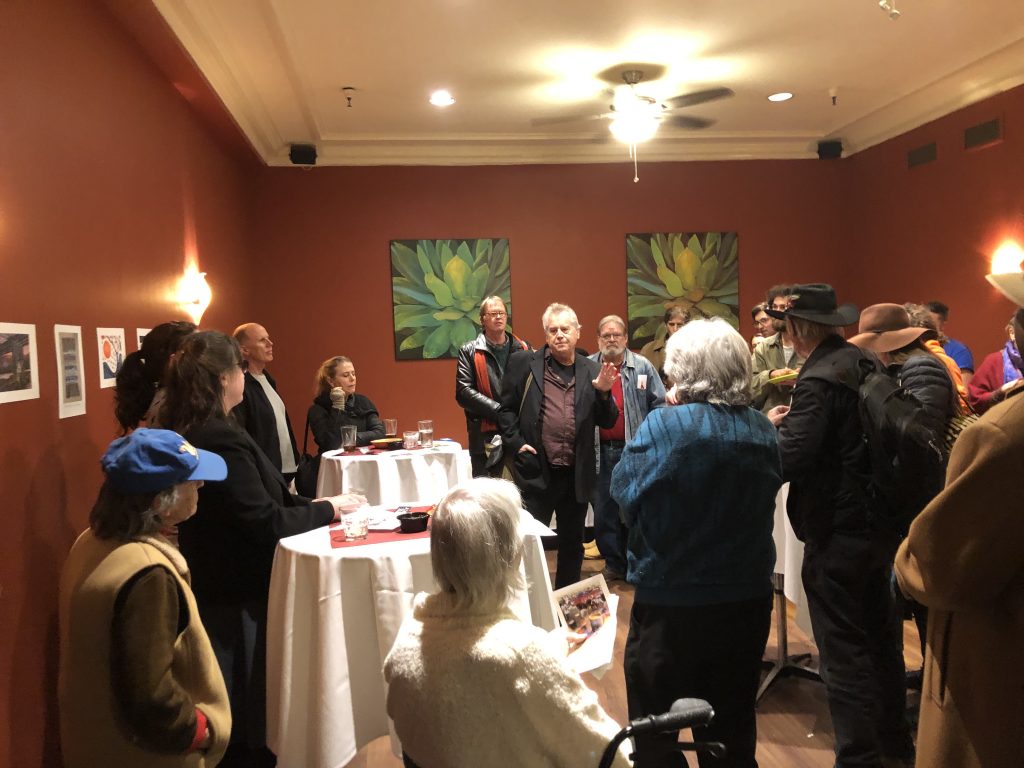
KMG: Question two: Many people we spoke to said they have friends or family leaving Santa Cruz County because of the cost of living. Many said they want more jobs and higher wages. Do you agree and how would you address that need? Drew Glover.
GLOVER: Well, Santa Cruz unfortunately is a predominantly service-oriented city.
So the only way that we could potentially bring in higher-paying jobs is tech, which is questionable and has the possibility of further gentrifying the community, or green industry jobs, which could be investing in different ways of creating green technology that could help to offset climate change or stuff like that.
I would more prioritize green jobs than tech jobs. Because I mentioned before tech has the history and track record of gentrifying and further making housing affordable. So figuring out how to bring green jobs into Santa Cruz by investing in projects and programs. Figuring out how to support those new businesses that are coming up, you know, some of the ones that are located over in the Wrigley building.
Also, union jobs and making sure that union jobs are getting paid more. I think that’s something that’s notable on my record on city council is fighting for one of the largest increases for the SEIU service workers in a very long time with regards to city employees. That may be, you know, I was just supported by the SEIU 521 and they’re coming out against the recall. So I think that talks a lot to my relationship with the workers of the city and their desire to keep my representation on the council.
And figuring out solutions like community workforce agreements, which would essentially guarantee certain levels of pay for projects over a certain amount of money or that met certain categories that were done by the city.
So figuring out how to support union labor I think is a good first step. And then figuring out how to bring in other either industries or professions into Santa Cruz that can support higher pay and treat people how they deserve.
But also figuring out ways to increase the minimum wage, I think, locally and statewide. I know that that’s in process and figuring out ways that we can do that.
KMG: Renee Golder, same question. Many people we spoke to said they have friends or family leaving the county because of the cost of living. Many said they want more jobs and higher wages. Do you agree? And how would you address that need?
GOLDER: I agree that we need more jobs and higher wages in the area. I think that a lot of people would agree to that. How we do that, we’d have to figure out ways to attract businesses. We also would have to think about ways to increase revenue for going to be increasing wages, at least for our city employees.
And I remember when Costco came in, nobody wanted Costco but I can guarantee that’s a huge source of tax revenue for this city. And so I think some things might not be ideal to everyone.
But if we want a sustainable economy, we’re going to have to encourage local businesses and a little bit of development with businesses.
But I’m not suggesting like bring like, some, you know, big box stores like a Target in downtown Santa Cruz or anything like that. I’m definitely not suggesting that.
But I’m just saying like, we can think of ways together, find the businesses that are the right fit. I don’t want to Walmart or anything like that like, but find something that’s the right fit that’s good for the community. And that can bring local jobs. And I think there’s a lot already here that are kind of homegrown. And I think those are great and encourage them to stay and not move over the hill.
KMG: In what industries?
GOLDER: Well, I know they just have that Looker downtown. So in the tech industry, for sure.
I think that there’s a lot of new cannabis businesses popping up around town we can definitely incentivize them to want to stay and not move to South County or North Monterey County.
I think that let’s see, I don’t know, I’m not a business person. I’m just, I’m just a teacher. But I do know, I shouldn’t say ‘just a teacher.’ I am a teacher.
And so I think that finding people in it — there’s a whole Economic Development Department of the city of Santa Cruz. I’d love to hear what they have to say. That’s not my area of expertise. But I would respect and default to people in that department in that regard.
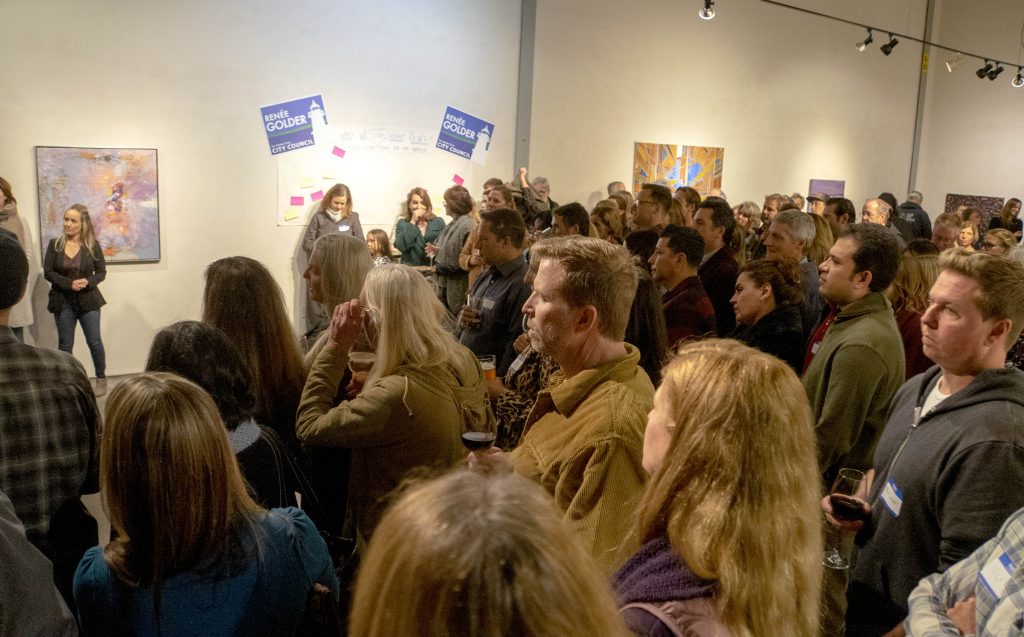
KMG: Here’s Tim Fitzmaurice. Again, many people we spoke to said they have friends and family leaving the county because of the cost of living. Many said they want more jobs and higher wages. Do you agree and how would you address that need?
FITZMAURICE: Well, first of all, I agree because my own family has been affected by this. My own grandson lives in town lives in $1,000 a month room working at a low, really low-wage job. And I can see that that housing insecurity and those kinds of things are going to drive various people out of this community.
And so how do we actually encourage business or encourage investment? I think we need to — you know, I was here when Texas Instruments left. I was the mayor when Texas Instruments left. That was when Bush was elected, and he was from Texas. And I always had a feeling Texas Instruments left because of that. We need to be able to encourage business, and to be able to encourage the kinds of businesses that work in this community. I think we have a very unique community that wants its businesses to reflect the type of people that live here. And we need to bring in business that’s committed and develop that business.
So we need to create incubators. We need to create things that are going to come right from the foundations of the people in this community. And we’re so close to Silicon Valley, we’re so close to that knowledge base and to be able to doing those kinds of things.
I mean, people are moving here because they can do their work here remotely. We just need to make sure that this doesn’t become sort of Airbnb and spa for people that are that don’t need to be working and just want to be near the beach.
We want businesses that are based in in the local economy and with local people that are committed to living here. That’s all. I mean, When city has something to do, when the city has something to do with approving those businesses or approving the buildings that they want, you know. When Borders wants to rebuild a building, the city has something to say about doing that.
The city council’s position has always got to be to represent the best interests of the community. And that’s how city council gets involved in shaping a business. You have to be welcoming to businesses that makes sense for the community.
That’s the way I look at it. And hope that that brings, you know, the kinds of wages that are going to make it in this, you know, neoliberal economy that we’re facing right now, which tends to, you know, tends to — there’s an abyss between people that are low income and people that are wealthy. We need to figure out a way to deal with and to move people more into a kind of moderate income.
KMG: Third question. Dozens of city voters we heard from said they want Santa Cruz to be more of a leader on environmental policy. Some of the things we heard were more bike lanes, composting programs and better public transit. What are two environmental policies that you will push to get on the city council’s agenda this year?
Drew Glover.

GLOVER: So I’ve been working on the issue of citywide composting. I’ve met or my interns and I have met with different city representatives to talk about the current plan on citywide composting. And while there are movements towards that goal, eventually the how, I think, is the ultimate question.
As to whether or not we’re going to be retrofitting and using fossil burning fuel vehicles to collect the food waste and then figuring out where that goes. Or just take it to our wastewater treatment plant, then using the digester. Or if we’re going to be figuring out ways to partner with existing cooperatives like HardCore Compost, for example, which is the group that I’ve been kind of researching and figuring out the best ways to potentially share an implementation and using a fleet of electric bicycles or electric carts to be able to go around and pick up the compost.
Other things with regards to environment and leadership. Well, I’m working on, it’s kind of a mixture of equity and sustainability. It’s the what I’m calling, or what we’re working on myself and some of my colleagues, which would be the Beach Flats Impact Fund.
Figuring out ways to generate additional revenue to go into a fund that would be specifically to focus on the beautification and sustainable development of the Beach Flats community with regards to climate sequestration, flood prevention and mitigating climate change. when one of the most vulnerable and poorest neighborhoods in the community that are subjected to immense amounts of CO2 emissions from the constant traffic around the boardwalk, the sound pollution, as well as the limited access to green space.
KMG: Renee Golder, same question. Many people we spoke to said they want Santa Cruz to be more of a leader on environmental policy. Some of the things we heard were more bike lanes composting programs in better public transit. What are two environmental policies you’ll push to get on the city council agenda this year?
GOLDER: So I agree with the bike lanes. I often like to ride my bike and my kids ride their bikes every day for their primary transportation. I think that the safety of bicyclists in Santa Cruz is super important.
But I also like the idea of finding ways to incentivize people to use public transportation.
And another thing I think is important is reducing the trash that’s in our landfill. Without China taking all of our recyclables, I know a lot more things that used to be recycled are now going into the landfill.
And so I think composting is a fabulous idea. I know the city in the past had a little composting program where you could get a bin for your house and you could do it yourself in the backyard. But a lot of cities have buckets that you can then put in your green waste or whatever. So I think that that would be a good way to reduce our carbon footprint here in Santa Cruz.
KMG: Tim Fitzmaurice. Again, what two environmental policies will you push to get on the city council’s agenda this year?
FITZMAURICE: We need to focus on bikes and focus on cross county kind of bike transportation, and those kinds of things.
I worked on the Soquel bike lanes when I was in office, which was a terrible challenge, because it’s a narrow road is dangerous road. We had to shift lanes over we had to do all kinds of things. We had to get rid of parking which bothered people no end.
So we had to make decisions about changing the communities so that we could create an opportunity for bicycling that was safer. My own father used to ride on Soquel and it scared the hell out of me.
So, the point is we need to make it safer. You know, the ways that we make it safer is by focusing on bike safety and those kinds of things.
I think the environment, unfortunately, I think it’s under attack because expansion of the community. The idea of developing the community in certain ways is going to have an impact on the way we structure the environment. We need to keep in mind we’ve created a green belt and we needed to protect that greenbelt no matter what.
KMG: Fourth question, the most common concern we heard was about housing. Candidates often say they’re for affordable housing, but we want to hear the details. What types of specific housing developments would you support and where could they be in the city?
Drew Glover.
GLOVER: Low and very low-income housing would be the housing that I support, I am very resistant to market-rate housing and the argument that supply will meet demand. Because at this point, no matter how much we build, that – we’re never going to be able to match the need, if we’re just focusing on market rate housing with one or two affordable units in any of the complexes, even with the 190 West Cliff project where there were, like, 10 “affordable” units. That compared to the 89 units total is not the percentages that we need to see, which if anything, we should flip that.
Like, for example, downtown there’s 600 units been proposed, but only 100 of them are affordable. I think that that number should flip so that we have 500 affordable units and 100 market-rate units.
However, downtown is a tricky subject because of all of the land ownership of development companies and, and developers in general. So we need to start looking at plots of land that are for sale throughout the city and generate additional revenue into a fund to be able to purchase those properties and begin to consolidate parcels. Partner with a nonprofit and then develop low- and very low-income housing there through the use of a community land trust.
KMG: Quick note here. I checked with the city’s planning department for the latest estimates of numbers of housing units proposed for downtown. There are six projects in various stages of design. They call for 759 new units, about 220 of which would be affordable.
I followed up with Glover about how to pay for those 100 percent affordable projects. It was easier to fund those kinds of projects when cities had redevelopment agencies. The state shut down those agencies after the recession. I asked Glover, what’s his plan for how the city could fund those 100% affordable projects?
GLOVER: So, like I mentioned before, generating additional revenue through progressive tax measures. We’re looking at a real estate transfer tax in Santa Cruz in general, which is about one-11th of 1 percent, I believe, if you look at the money that goes into any tax from real estate transfers. As opposed to places like Berkeley, for example, that have a 1.5% real estate transfer tax on properties under $1.5 million, and anything over $1.5 million, I believe, is 2.5%.
So we would be dramatically increasing the income from real estate transfers if we were to tax at a higher rate. And we could do it progressively. Because some people say, well, you know that that’s going to make it harder for first time homebuyers.
But if we’re looking at a house that’s between $500,000 and $700,000, which admittedly are not many in Santa Cruz, then we can have a different tax rate for that bracket as opposed to say, $750,000 to $1.5 million at a different tax rate, and then anything over $1.5 million being a potentially the 2.5% tax rate that we see in Berkeley. That again, would dramatically increase money.
The transient occupancy tax is surprisingly low here in Santa Cruz. I believe we have a lower rate than Berkeley’s. I spoke to the finance department. And they said that every 1% we increase the transient occupancy taxes about another $1.7 million in the general fund. So just with a 2% increase in the transient occupancy tax, which is a drop in the bucket, essentially, for anyone that’s going to be coming here to enjoy Santa Cruz County — which just was reported as being a billion dollar industry — then we can generate enough to close that gap in our budget deficit. And if we want it to be really intentional with it, over a period of say, three to five years, increase it up to 14% or 15%.
KMG: Here’s Renee Golder. The question, what types of specific housing developments would you support and where could they be in the city?
GOLDER: Well, we have to build the right kind of housing in the right neighborhoods. Again, I’m not a developer, but I know there are people with that charge that work for the city. And, I would be – I know they’ve been working on different projects. I know that they started the Corridors Project and that got shut down.
I think an obvious place for development is downtown. I mean it, it’s there’s some spots, I know that people have already been working to get units built downtown, I think in two or three different locations that I’ve read about.
Other than that, like if it’s private property, I’m not sure. Like I don’t know who owns what part of town, but another spot that I think could be developed a little further is the very far west end of Delaware before Antonelli Pond.
Right now, my main thing is I’d like to see Santa Cruz City Schools move forward with their workforce housing project. And hopefully that can be a model to serve other employers on how to help house their workforce in an affordable situation.
KMG: I followed up with Golder on her stance on market-rate projects. The city council has had some contentious votes on market-rate projects this past year. These projects have a required number of affordable units. They’re called inclusionary units. I asked Golder: What’s your stance on market rate projects that have those required affordable units?
GOLDER: Yeah, I think it’s important to have those inclusionary units in there and, and have it be part of the neighborhood. You don’t want a neighborhood where there’s, you know, one socio-economic group and another completely.
Like, it’s great to have everybody mixed together. And I’ve known people that have bought, and they used to be the Measure J or the Measure O units and then sold them and transitioned into, you know, regular market-rate homes.
So, I don’t think developers should be able to pay a fee and get away with not including those. However, I’m not sure if the 20% or the 15% or whatever the percent is — I don’t know, I’d have to look, I’m not — I’d defer to like, reading reports. And I’d want to learn more about that a little bit.
But the thing is, we still want to encourage developers to develop and if we make it where it’s not affordable, or we create too many barriers, I think people would be reluctant to want to build in our city.
And then on the flip side, if they put in more affordable or low-income units, how much more are the other units going to cost in order for that developer to get a return on their investment.
KMG: I talked to Tim Fitzmaurice about housing. He says the city should do more work with developers who specialize in 100% affordable projects. He says the city should also try to get as many affordable units as possible out of market rate projects. I asked him, “What types of specific housing developments would you support and where They be in the city?”
FITZMAURICE: Well, I think that density is going to be important in future projects. There’s no doubt about it, because we’re not going to build — we’re not going to expand that way – we’re going to expand in some other way. The density to me has to happen on Ocean Street. It has to happen on Pacific, it has to happened on corridors that makes sense.
And if it’s going to happen in other corridors, for instance, the Eastside, the Soquel corridor, that neighborhood has to be completely asked to buy into it. And we have to figure out a way that they can buy into it and makes sense to them. Because they’re the ones that are going to create the environment that those places are going to be working in. And we also have to understand the new economy, the new transportation system, and not necessarily build a lot of parking, storage units, you know, garages in order to just supplement those particular things.
We need a new way of thinking about the type of places that we build or that we permit. And if we give direction that this is where we want these things, and this is how we want them, basically to look, I think that those people that build stuff are going to figure out a way to make a profit on that. And we need to leave that to them. We don’t need to figure out how to give them a profit. They can figure that out.
KMG: Fitzmaurice also says he supports a 20% inclusionary rate. The council voted 4-3 last year to increase that rate from 15%. The council members who didn’t support it said they wanted a study. Proof that the market could support that high of a rate. The worry is, if you set the inclusionary rate too high, projects may become too expensive for developers. They might walk away.
FITZMAURICE: They told me 20 years ago it won’t pencil out. They’ve been saying this for 20 years. No. I’m sorry, I you know, I don’t, I don’t buy it. You know, I don’t buy that somehow. We can’t ask them to be responsible developers. I don’t buy it.
You know, I don’t know what people are thinking. You know, everybody’s been saying these things for forever. That, you know, we’re not being kind enough to the developers will look where the city’s gone as a result of that. Look where we’ve gone by not actually including the inclusionary. Not actually building the units. Where have we gone?
I think this is a tremendous challenge for us to actually say to people: This is what you, this is what you must do. There’s no doubt that what they’re trying to do and they should this is their job, a capitalist’s jobs to make money, that’s their job to figure out a way to expand the profit on a, on a project. I don’t blame them for it. I just think it’s the city council’s job to push back on that and say no.
We have a very unique environment. We have a contained environment, you know, it’s not forever expandable. We want to do things with this community that that are going to be beneficial to the people who live here.
We’re not trying to invite new people in. They can come if they want. But the fact is they’re coming because we have the community we have. They’re not coming — they should value it as much as anyone else.
KMG: Last question. Several people we spoke to you are frustrated with the division on city council. They see a lack of progress. Can you give an example of when you worked together successfully with someone you didn’t agree with?
Here’s Drew Glover.
GLOVER: The Health in All Policies stuff. I didn’t — I wasn’t participatory in the crafting of that proposal, but I supported it and voted along with my colleagues in wanting to do that. The Children’s Fund. Again, I didn’t build that, but I supported it in general.
There’s been a tremendous amount — or lack, I should say — of trust on the city council, especially amongst opposing parties, you can see the, the line very clearly in the voting patterns. But also, from the very beginning, there was a destruction of trust by the decision of the mayor to make that statement on Feb. 12th.
And then the resulting kind of behavior and lack of intention in resolving that issue in the first place. Also, my attempt to deal with the just-cause eviction language with one of my colleagues that’s in opposition to the ideologies that I represent, apparently. I’ve tried to work with them diligently and then they backed out of the very last minute and kind of betrayed myself and another one of my colleagues that we were trying to do something that was holistic and representative of both communities and all that kind of stuff.
So, it has been few and far in between when there has been successful co-working with people. But I think that has a lot to do with the leadership over the last year of the city council.
KMG: Here’s Renee Golder. Same question. Can you give an example of when you worked together successfully with someone you didn’t agree with?
GOLDER: This is kind of a funny question. I was talking about it with my boss the other day. Literally, every day, we disagree about something at work. And there’s never any ill will. We both know we both want what’s best for children. And so, we always resolve it by listening to each other. And sometimes I change her mind, sometimes she changes my mind.
But more often than not, we meet somewhere in the middle. And, I just think if you ask anyone I work with, I have a history of being able to be a problem solver and be creative thinker and work things out together with people so, I think I would be a good addition to the city council.
KMG: Here’s Tim Fitzmaurice. Can you give an example of when you worked together successfully with someone you didn’t agree with?
FITZMAURICE: Yeah, definitely. Because I was on the council. And Scott Kennedy was a major figure in the council in those days, they named a soccer field after Scott. Scott and I argued all the time. And I said to Scott, “Scott, you know, I’ll fight with you on the dais but I will not fight with you over the cookies in the back room anymore. We got to stop, we got to stop.”
And he thought about it for two weeks, as I recall, he came back and said, OK, yeah. And we were friends after that. We were, you know, we, we worked together and we disagreed completely.
KMG: And what did you get done?
FITZMAURICE: We got all kinds of things done. We, when we had, when I had a majority, we got all kinds of things done. You know, for instance, buying the Fun Spot where the Marine Sanctuary (building) is, or rebuilding the Del Mar Theatre. And then when the city manager didn’t want to pay money for an elevator, we, as a council, we had to override the staff and say: no, this is what we want. I always went in that direction when I was on the council. What can I say yes to? What can – what can I get somebody that disagrees with me just say yes to?
KMG: The next segment is a speed round. There were several contentious 4-3 votes on city council last year. And we wanted to see how the candidates would have voted. We also ask the incumbent to explain his vote.
To be clear, we’re not advocating for any particular outcome. We just wanted to see where the candidates stand on recent controversial issues.
A couple quick things to note. We ask about the 190 W. Cliff project. That’s a proposal that calls for 79 market-rate units and 10 affordable units, slated for the Dream Inn parking lot. It passed narrowly by a 4-3 vote at city council last year.
We also ask about the Circle Church. There’s a proposal for a housing project there. It would demolish the church that’s there, and call for one of two proposals, either 12 single-family homes or 10 single-family homes, six townhomes and several accessory dwelling units.
I also ask the candidates about their stance on plans for the downtown library. The city council’s expected to decide on a library plan in the next few months.
There are two choices. One, a library/garage/housing project where the farmers market is. Or two, a smaller and less ambitious renovation of the current library.
Drew Glover.
KMG: Can you explain in a few sentences why you voted no on the 190 West Cliff project?
GLOVER: Because of the incredible impact it was going to have on the low-income community that neighbored the property because of the lack of sufficient amounts of affordable housing.
KMG: Should there be homes where the Circle Church now stands?
GLOVER: That’s a tough one. I think that there should be – if they can maximize affordable housing – then I think that we should use every available parcel in our community to develop affordable low and very low-income housing.
KMG: Which library plan would you support given the information we have at this moment?
GLOVER: Maintaining the library where it is and retrofitting it using funds that we can allocate from other places.
KMG: Where are appropriate parking lots or areas for people living in their vehicles to sleep?
GLOVER: Churches. I mean, I’m an advocate of – with a controlled and monitored space – potentially on Delaware and broad streets like that, that can support services and waste management and all those other kinds of things that would be a responsible way for people to be able to sleep.
KMG: Can you explain briefly why you voted in favor of the motion that killed the Corridor Plan?
GLOVER: It didn’t kill the Corridor Plan, it reset the Corridor Plan and made it so that there was the opportunity for equitable inclusion from people that were on the Eastside and the Westside to participate in the design process. So, I would encourage and appreciate it if you didn’t frame it that way.
KMG: Here’s Renee Golder. Same questions. How would you have voted on the 190 West Cliff project?
GOLDER: I’d want to study it further.
KMG: Should there be homes where the Circle Church now stands?
GOLDER: I’d want to have neighborhood meetings and study it further.
KMG: OK, but do you think it’s appropriate for homes to go there?
GOLDER: Well, I don’t know what it’s zoned. I’d have to study it further, sorry.
KMG: OK. It is zoned for residential.
GOLDER: [silence]
KMG: [laughs] OK, um. Which library plan would you support given the information we have at this moment?
GOLDER: I like the idea of having more information from our community, it seems like a responsible way of approaching the decision. And I want to do what’s best for kids and family. So, I don’t have – I don’t – I’m not coming in with a hard and fast this or that with the library at this point.
KMG: We’re still awaiting the second report.
GOLDER: Exactly. So I’d like to wait for the second report before making any firm decisions about the library at this point.
KMG: Where are appropriate parking lots or areas for people living in their vehicles to sleep?
GOLDER: That is a difficult question. Right now, I don’t think we have any appropriate parking lots or places for people to live while they’re in their vehicles. That’s something I think we could work on. I don’t know where the locations are that would work. Possibly the lot with the county building in it? I mean, no one’s they’re sleeping at night, if it was just at night time.
The other thing that I think that would be beneficial to the community of people that are living in recreational vehicles is, I don’t know of a place in town where they can dump their black water – I think that’s what it’s called. We rented an RV once and we had to go to San Jose to dump it out.
And so that seems like an easy solution the city could put in place is — put a place where people could empty that and refill it with clean water, and it would prevent people from having to empty them illegally. And so, if there was something like that, and a parking lot that doesn’t get used during the night, that that could possibly be a solution for that.
But I don’t — I want to, you know, look at all options.
KMG: How would you have voted on the motion that killed the Corridor Plan?
GOLDER: I didn’t read all of the detailed reports that were available to the council members about the Corridors Plan. I do know a lot of work went in to producing them by city staff. And so, I would hate to try and just make a decision right here and now without having looked at that material that was provided to the council members that helped them make their decision, whichever way they voted.
KMG: Would you support denser developments at busy intersections within the city?
GOLDER: I know there’s a lot of new rules that are coming down from the state in the city council’s going to have a lot less ability to, to regulate some of this stuff. And so, it’s going to be kind of a whole new world this next year. And so, it’ll be interesting to see how that pans out.
KMG: And are you for the recall?
GOLDER: I don’t want to tell people how to vote on the recall, I was planning on running in November 2020. I only stepped into the race because I saw that nobody else was filing. If I had heard anyone else was running, I probably would have still waited ’til November to run. But people can vote how — vote their conscience — whatever they feel.
KMG: Tim Fitzmaurice. Same questions.
KMG: How would you have voted on the 190 West Cliff project?
FITZMAURICE: Well, I don’t understand the whole project and I wasn’t reading the agenda packets at the time. And, and I don’t, you know, didn’t watch all the meetings as much as I probably should have. I teach in a prison on Wednesday morning at 5 a.m., so I don’t watch meetings that on Tuesday night, that often.
But what I, what I see in that project is the lack of affordability that was just disgraceful. And so, I would have probably rejected that project. Yeah.
KMG: Should there be homes where the Circle Church now stands?
FITZMAURICE: No, that’s a, to me, a historic place. I don’t think people understand how historic that is, I was looking at the 1905 map and, and that circle, those circles where we’re near right now, represent the tent camps that were built here by the religious people when they decided to come from San Francisco and do their little summer, you know, of religious, you know, whatever it was, here.
And so, they created these little circles of tents and things. And those, that’d be – those became homes that became more permanent.
I think we need to look very seriously at the historic nature of that and protect that.
KMG: No. 3. Which library plan would you support, given the information we have –
FITZMAURICE: Yeah, exactly. I went to the meeting. Well, first of all, I’m against a library garage. And I – the fact that they’re throwing in some affordable housing is to me cynical, just trying to figure out a way to create – to sweeten the deal for the community, but that doesn’t necessarily mean that it’s going to be affordable, that it’s going to work for the community.
It’s like, you know, they were talking, people were talking about not enough study has been done. Well, I mean, we don’t know how that project would turn out.
KMG: Where are appropriate parking lots or areas for people living in their vehicles to sleep?
FITZMAURICE: I don’t know. I – I’m, you know. That’s something that has to be discussed by neighborhoods and it has to be understood by neighbors, and we have to understand what the impact is. It’s not out of the question. It’s not out of the question to find place for RVs to go, especially when you just when you discover who’s living in them: Older people, families and things like that.
I mean, we have a notion of, we just criminalize that, that – that area that you know, those people, and actually those people are, like I said earlier, poor. And they need to figure out a way to live and they are not necessarily strangers from beyond. This should be their home.
KMG: How would you have voted on the motion that killed the Corridor Plan?
FITZMAURICE: That killed the Corridor Plan? Well, I think I would have voted against. I mean, I was against the Corridor Plan. I was finally – it – because it wasn’t worked out completely with the with the people on the Eastside. So I guess that’s a no vote.
But no, essentially that, that Corridor Plan. Those people are the people that I know, the activists over there are not against density, they’re not against doing – building things.
I don’t think Soquel’s the ideal place to do that until Soquel becomes even more revivified, you know, in a variety of ways. But it’s, it’s a place and it’s one of the main corridors of the community. So, it’s not it’s not out of the question, but it has to be done in coordination with that neighborhood. And I don’t think the plan was done in total coordination with them.
KMG: Are you for the recall?
FITZMAURICE: I’m against the recall. I, you know, what can I say about that? I mean, I think the recall it does a disservice to the work of the people that are that are being recalled. The recall process, I think, was unfortunately, not always, it was – is funded by people that I don’t think really had the, the community’s best interests at heart. They certainly didn’t even have – they didn’t have the, the best interest of the people that were struggling in the, you know, the little arguments that were going on there, they didn’t have their best interests at heart necessarily at all. They had something else in mind.
They made it absolutely clear a year ago when I heard someone that was running, you know, on TV, you know, TV news say, they were asked what – why? Why are you, you know, doing this recall? And she said, we want to rebalance the council. Well, that isn’t a reason to recall people. That’s a reason to vote differently in the next election.
[MUSIC]
KMG: Let’s recap what we just heard.
SB: Well, what I heard was some differences in the candidates on the issue of homelessness. Glover said that he wanted to build transitional camps with services. Golder said she would try to work with, or lean on the county to try to get more homeless services from them. She also said she’s eager to see the CACH report, which is the Community Advisory Committee on Homelessness in the city.
KMG: To be clear, the CACH isn’t necessarily going to give a full written report. It just periodically gives presentations to the city council with recommendations on policies.
SB: Fitzmaurice’s stance on homelessness was that he prefers compassion. And he says that the city has backed down on creating transitional housing. And he says that we need to move forward on that. So, on the homeless issue, it seems like Fitzmaurice would be kind of a substitute for Glover, if Glover were to be recalled.
KMG: Uh, I would say to an extent. Yeah, he did say the city needs more transitional housing. And he said that the city needs to do more managed camps like the 1220 River Street. He liked the site. He liked the program.
Whereas Glover thought that those kinds of managed camps were a waste of money. They cost way too much. He wanted to see, you know, a lighter model with, you know, still having a nonprofit manage it, but having the clients help to manage those programs.
Yeah, how about housing? What did you think about the candidates’ stances on housing?
SB: About housing. I see Glover and Fitzmaurice as pretty aligned. They’re actually really interested in affordable housing more than market-rate housing. I mean Glover said, “I’m very resistant to market-rate housing and the argument that supply will meet demand.”
For Fitzmaurice, he says he “doesn’t buy it” that developers will walk away from the city’s current law that you have to have 20% affordable units in new multi-family projects.
KMG: Really the dividing line here is whether you agree that the city needs more market-rate housing. When you look at the housing production goals that are handed down from the state and the region, the city over the past few years is actually meeting its goals for moderate and above-moderate.
But when you listen to people in the community, several people that we talked to are frustrated because they feel like they can’t find market-rate homes.
SB: Golder was a little harder to pin down, but she said she was more open to market-rate housing. She said “we still want to encourage developers to develop.”
She mentioned downtown and Delaware Avenue as potential places.
KMG: Not that Fitzmaurice was totally a hard line against market-rate housing. He says he sees the need for density along the city’s transit corridors like Ocean and Mission.
He was hard to pin down about his stance on Soquel Avenue. He was definitely against the Corridor Plan because it called for higher density along Soquel Avenue and he said that Eastside neighbors didn’t have enough buy-in.
But he said he was open to the idea of density there, as long as neighbors were involved. But then later, he went back and said that he doesn’t think Soquel Avenue isn’t right for development yet until it’s “revivified.”
So yeah. Not sure where he stands on that.
SB: OK. Let’s talk about why we’re having a recall in the first place. Santa Cruz United, which is the group behind the recall effort, lists three official reasons. They’re in the Voter Information Guide.
Basically they’re saying that they don’t agree with Glover’s votes on the city council to keep the Ross homeless camp open. Second, they’re saying that Glover tried to establish permanent homeless camps and overnight RV parking in neighborhoods.
And third, they said Glover “introduced a culture of chaos, bullying and disruption in two public meetings and general meetings.”
They’re saying he failed to meet basic standards of conduct.
By the way, those three reasons are the same reasons that were put in the petition.
KMG: We interviewed Glover several months ago when the petitions were being circulated. We got his response. It’s in episode 27.
Basically, he disagrees. First of all, he said that he wanted to renovate the Ross Camp. He didn’t think it was viable the way it was.
On the second point, he did want overnight parking on Delaware, as he still does. He said that city councilmembers don’t have the resources to do community outreach on their own. So he couldn’t check with the neighborhoods beforehand.
He says, “My goal was to discuss the ideas with my colleagues, and collect community/neighbor/city official feedback before implementation.” That comes from his own campaign ad.
About the third point. Glover’s behavior. You should know that there were two substantiated complaints against Glover for violating the city’s Respectful Workplace Policy. The city hired two lawyers to do two separate investigations.
The first substantiated complaint had to do with what the investigator called a “terse” discussion Glover had with fellow councilmember Donna Meyers. Donna Meyers had overstayed her scheduled appointment in a shared conference room. Glover confronted her afterwards.
The second complaint had to do with a Facebook post that Glover wrote. Glover wrote that he disagreed with how two city commissioners left a commission. The investigator found that Glover’s social media conduct was “severe and egregious” and also could be perceived by a reasonable person to be derogatory.
Glover has told me in interviews that he disagrees with both investigators’ findings.
About the first complaint, Glover says he didn’t mean to offend Meyers. He says he’s just direct and unafraid of conflict. He says in retrospect, maybe he should’ve had that conversation in private instead of in front of Meyers’ guests.
About the second complaint, Glover says the investigator misinterpreted his intent with the Facebook post. He says, “The only thing that comes out of that is that I should have been more specific.”
Read or listen to our related stories:
- Santa Cruz City Council members respond to the recall campaign (July 10, 2019)
- Santa Cruz councilmember faces misconduct complaint (Dec. 15, 2019)
- Santa Cruz City Council members respond to conduct report (Aug. 23, 2019)
- Report highlights conflict within Santa Cruz City Council (Aug. 21, 2019)
SB: OK. Let’s talk about campaign funding. There’s a narrative that this recall campaign is being funded by the real estate industry and outside interests. People from outside Santa Cruz County. Kara, can you talk about that?
KMG: Yeah. This is a narrative that we’re hearing from the No on Recall campaign. We’re hearing it in stump speeches at campaign events. We even heard it from Mayor Justin Cummings who’s against the recall. He wrote in a Facebook post last month quoting large contributions to the No on Measure M campaign, which he ties to the recall.
So far, we haven’t seen any evidence to back this up in the campaign filings.
Let’s back up for a second. Measure M was a ballot measure that failed in 2018. It would have brought rent control and stricter eviction rules to the city. There were two committees campaigning against Measure M. The first was the big one, called Santa Cruz Citizens Against Costly Initiatives sponsored by California Apartment Association.
It’s true, there was a lot of outside real estate interests funding that committee. It raised about $560,000 in 2018, including a $287,000 donation from the National Association of Realtors.
But, there was also a second committee that was funding the No on M campaign: Santa Cruz Together. Santa Cruz Together is the group that’s supporting Santa Cruz United, which is the group that’s funding the recall campaign.
SB: So essentially, it’s a local group that’s funding this recall effort, not a state group.
KMG: Yeah. It’s inaccurate that outside real estate interests are driving the recall campaign.
According to the most recent campaign filings, Santa Cruz Together has raised about $120,000 since January of 2019. It’s mostly funded by local donors. Yes, many of them are real estate agents, property managers or landlords. But not all of them. And they’re almost all locals.
Last summer, Santa Cruz Together started supporting Santa Cruz United in leading the recall campaign. Santa Cruz Together’s campaign filings list about $85,000 of expenses since July. Those expenses are mostly for paid petition signature gatherers. Santa Cruz Together also hired a campaign company to produce its mailers.
Just a note here, since you may have heard differently. In California, it is legal to hire people to gather petition signatures.
[MUSIC]
SB: Thank you to our guardian-level members: Elizabeth and David Doolin, Patrick Reilly, Chris Neklason and the Kelley family.
If you find our work valuable, sign up for a membership. Membership signup is a santacruzlocal.org/membership.
Also, sign up for our free newsletter. It’s at santacruzlocal.org.
Thanks to Trimpot for the theme music.
I’m Stephen Baxter.
KMG: I’m Kara Meyberg Guzman.
SB: Thanks for listening to Santa Cruz Local.
Kara Meyberg Guzman is the CEO and co-founder of Santa Cruz Local. Prior to Santa Cruz Local, she served as the Santa Cruz Sentinel’s managing editor. She has a biology degree from Stanford University and lives in Santa Cruz.
Stephen Baxter is a co-founder and editor of Santa Cruz Local. He covers Santa Cruz County government.


